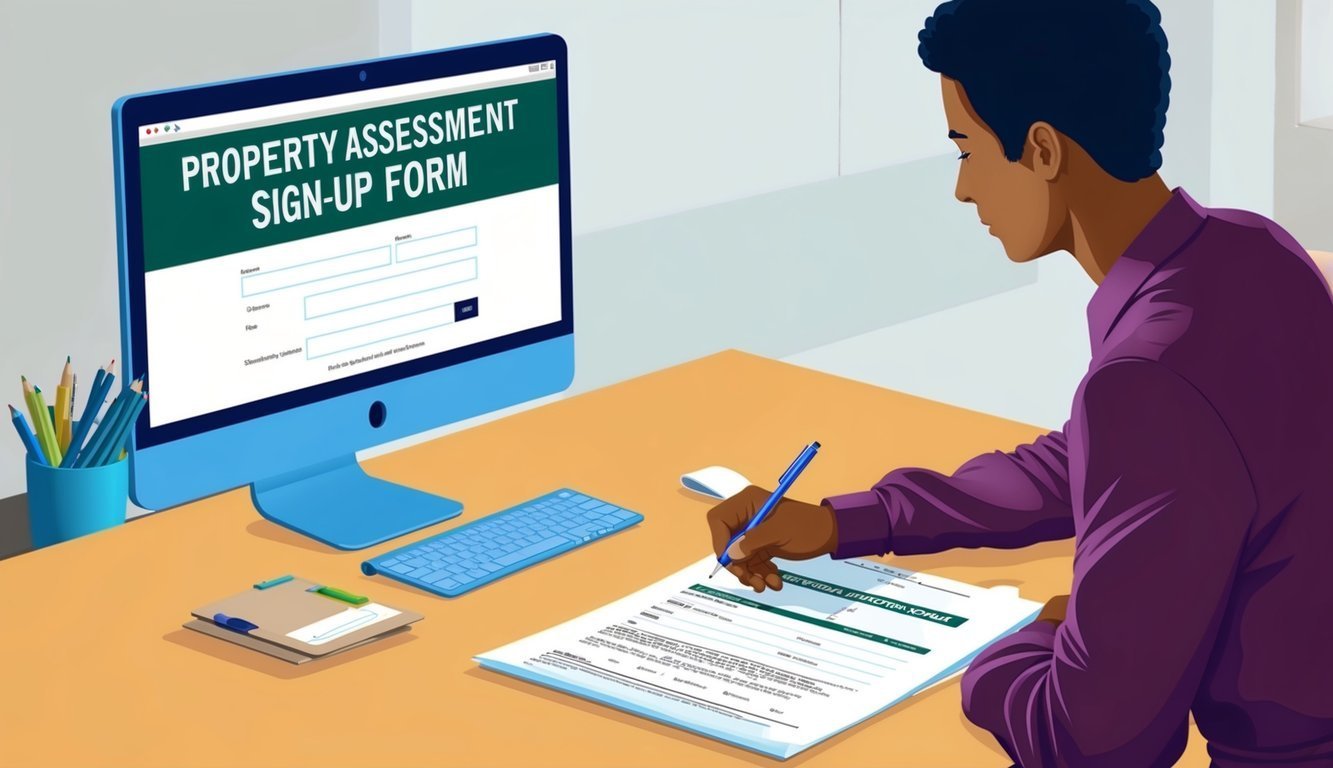**Understanding Property Assessment**
When you own a home or a business, knowing what your property is worth is super important.
That’s where property assessment comes in.
It helps you figure out your property’s value for tax purposes, which directly affects how much you’ll pay each year.
Signing up for property assessment isn’t as tricky as it sounds, and I’m here to guide you through the basics.
### Exploring Property Assessment Basics
Property assessment measures how much a piece of real estate is worth—sounds simpler than it is, right? This value becomes the basis for your property taxes.
The assessor will look at several factors, including:
– The size of your land
– The size and condition of your buildings
– Recent sales of similar properties nearby
– The overall location and neighborhood
Usually, assessments happen every year or a few years, making sure everyone pays their fair share based on what they own.
### Recognizing the Role of Assessors
Think of assessors as the people in your town who know a thing or two about property values.
They go around checking properties, looking at sales data, and even using computer models to make their estimates.
They keep track of changes like new buildings or renovations to ensure you’re treated fairly.
It’s their job to follow the rules to make sure the process is consistent for everyone.
### Diving into Market Value and Assessed Value
Let’s break down a couple of terms: market value and assessed value.
– **Market value** is what your home might sell for.
– **Assessed value** is often a percentage of that market value used to calculate your taxes.
For example, if your home’s market value is $200,000 and your assessment ratio is 80%, then your assessed value is $160,000.
That’s the number used for your property taxes, making it pretty crucial to understand!
### The Step-By-Step Sign-Up Process
Ready to get started with your property assessment? Here’s a simple plan:
1. **Collect Your Documents:** Gather everything you might need, like proof of ownership (your deed), recent tax bills, and your ID.
It helps to have copies of everything, just in case.
2. **Check for Credits or Exemptions:** Before you dive in, see if you qualify for any tax credits or exemptions.
Things like the STAR credit for homeowners or exemptions for seniors and veterans can save you some cash.
3. **Fill Out the Sign-Up Form:** You can usually get this from your local assessor’s office.
Make sure you fill it out completely—no blank spaces! Attach all your documents, and double-check everything for good measure.
4. **Submit Your Application:** Take your completed form back to the assessor’s office.
Some places let you do it online now, which can be super convenient.
Request a receipt or confirmation that you submitted everything.
5. **Verify Your Information:** Last thing, make sure they’ve got your details right.
They’ll check your name, address, and any property details.
If something’s off, let them know quickly!
### Frequently Asked Questions
Got questions about property assessments? Here are some answers to common ones that often trip people up.
**What’s the difference between tax assessment and property tax?**
Tax assessment is the value assigned to your property, while property tax is the amount you actually pay based on that value.
Your local government uses this assessed value to figure out your yearly tax bill.
**How can I find out my property’s assessed value?**
You can check your property’s assessed value by contacting your county assessor’s office.
Many counties even have online databases for this info, and you can usually find it on your recent property tax bill.
**How much does it cost to get a property assessed?**
Costs vary quite a bit depending on where you live.
Typically, assessments range from $300 to $800 for a standard home, but keep an eye out—some areas offer free assessments during certain times.
**What about estimates from Zillow?**
Just a heads-up: Zillow’s property value estimates aren’t official assessments.
They use an algorithm based on public data, so while they can be helpful, they may not be accurate.
Always check with your local assessor for the real deal.
**Do I need to pay right after my property’s tax assessment?**
Not quite! You won’t have to pay the new amount until your next property tax bill comes around.
If you disagree with the assessment, you can appeal it within a certain timeframe.
Getting through the property assessment process might seem daunting at first, but with a little preparation, you’ll be ready.
Take it step by step, and don’t hesitate to reach out for help if you need it!

